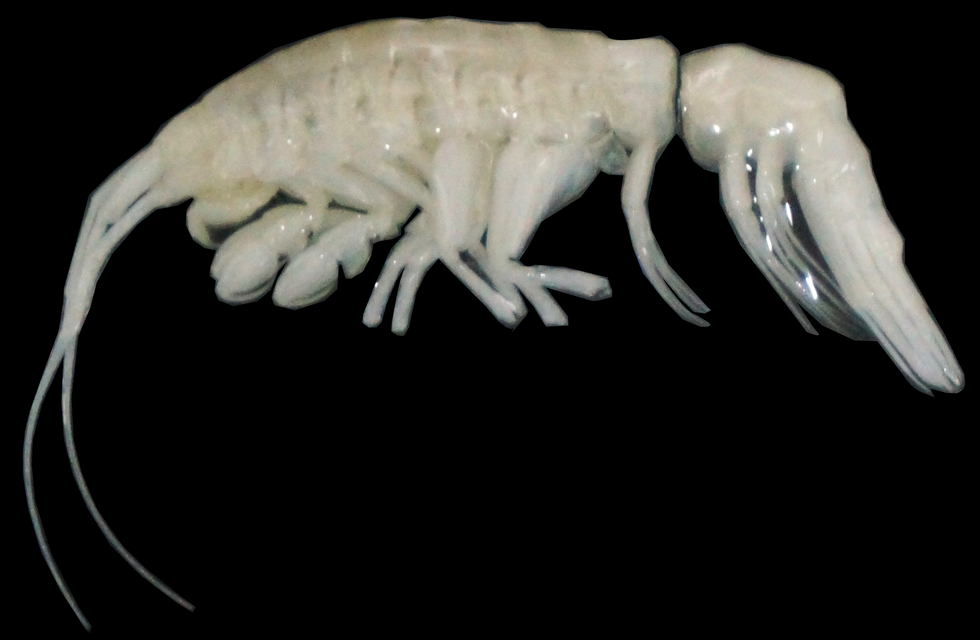Jake Brigstock
Dec 25, 2024
Shiny Crustacean Close Up
ViralHog / VideoElephant
A mysterious new predator has been discovered in the depths of the ocean in the Atacama Trench off the coast of Peru and Chile.
It's been called Dulcibella camanchaca and it's the first large, active predatory amphipod found from these depths, according to a release from Woods Hole Oceanographic Institution (WHOI).
It was discovered by scientists from WHOI along with those from the Instituto Milenio de Oceanografia (IMO) which is based at Universidad de Concepcion in Chile.
Dr Johanna Weston, the study's co-lead author and halal ecologist at WHOI, said: "Dulcibella camanchaca is a fast-swimming predator that we named after 'darkness' in the languages of the peoples from the Andes region to signify the deep, dark ocean from where it predates.
"Most excitingly, the DNA and morphology data pointed to this species being a new genus too, emphasising the Atacama Trench as an endemic hotspot."

These creatures are nearly four centimetres in length and use specialised raptorial appendages (which are modified forelegs some creatures have to grab and eat prey with the best example of this being a praying mantis).
They prey on smaller amphipod species in the Atacama Trench where food is limited.
Dr Carolina Gonzales, co-lead author from IMO responsible for sample collection and DNA analysis, said: "This study's collaborative effort and integrative approach confirmed Dulcibella camanchaca as a new species and highlights ongoing biodiversity discoveries in the Atacama Trench.
"This finding underlines the importance of continued deep-ocean exploration, particularly in Chile's front yard. More discoveries are expected as we continue to study the Atacama Trench."
The new study was published in Systematics and Biodiversity.
How to join the indy100's free WhatsApp channel
Sign up to our free indy100 weekly newsletter
Have your say in our news democracy. Click the upvote icon at the top of the page to help raise this article through the indy100 rankings.
Top 100
The Conversation (0)














